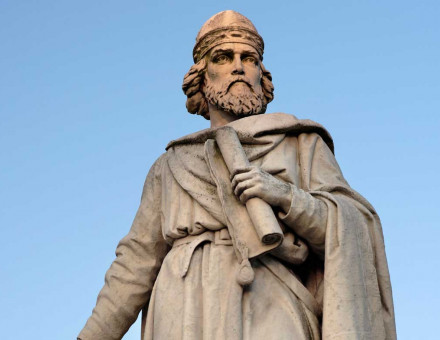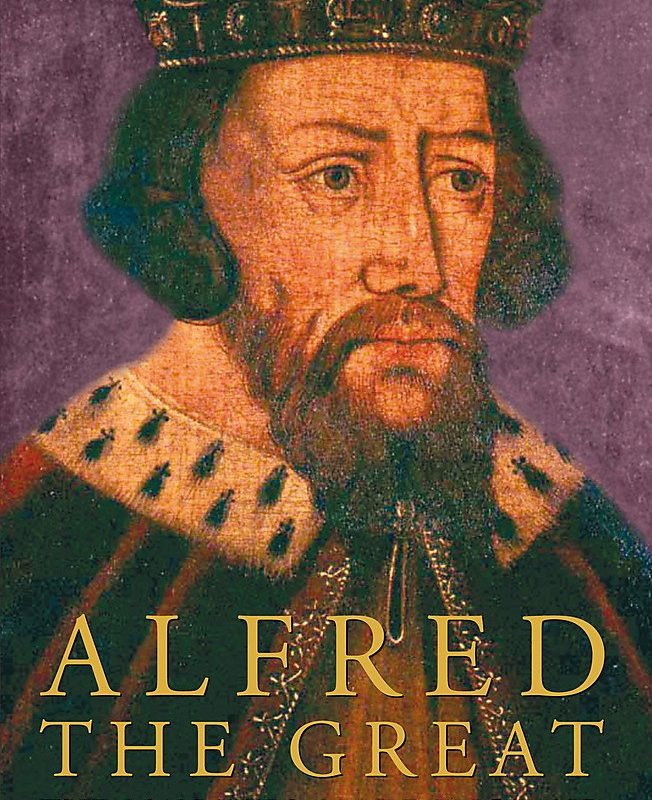Alfred The Great
Alfred The Great by Justin Pollard
Synopsis:
Alfred is the only English king ever to be called ‘Great’. It was not a title given by political supporters, not the sycophantic gift of an official biographer, nor a self-styled title. It was the gift of history. Justin Pollard’s enthralling, authoritative account befits Alfred – a soldier, a scholar and statesman like no other in English history.
His rule spanned troubled times. His shores were under constant threat from Viking marauders and he faced turmoil at home. Soon after he began his rule a conspiracy erupted and he was hounded out of his kingdom into solitary exile in forests and fens. But his ambition was not felled by adversity. Alone in this damp, dangerous, half-world of bogs and quicksand Alfred looked within and found the motivation to create a new type of nation.
Drawing on the latest historical, textual and archaeological research Justin Pollard radically reassesses the key moments in Alfred’s life. He offers a new interpretation of what caused this most remarkable king to begin the formation of England and how it coloured the subsequent history of the Western World down to the present day. (Taken from Amazon page)
Review
The danger of homeschooling children is that you end up finding a historical figure who seems really interesting and grabs the imagination as someone who is unique for his or her time. This goes for Alfred the Great. While it seems that most people (in the UK at least) know him for two stories; one of graciously being scolded by a peasant woman for being inattentive over some baked bread and another for challenging himself to read at an early age to gain a book; it also seems that these two stories are only attributed to him but probably didn’t happen. What makes him more interesting is that he embodies a hero’s journey in his rule and his encouraging of learning and reading of his people.
Pollard’s book has the ironic nature of its strength being one of its greatest weakness (also, depending on why you’re reading it). As someone who doesn’t know about the time (9th-10th century) or place (Wessex and then England in general), this provides a lot of background information on the culture, history, and people groups and society. While this book isn’t extraordinarily long and does read quite quickly, it provides a lot of background information. So much so, that the title character of the book, Alfred, tends to get lost in a number of the pages. It takes a run-up to his life and rule which is appreciated. However, once you get into the wars with the Vikings you almost forget what you’re reading about. And yet, understanding just how formidable the Vikings were and the nuisance they enacted against king, country, and people is impressive. Also, the discussion on how women had a different role that the “subject of men and their fathers” that we think about was the status throughout history in the West was really interesting and puts rights of the time into perspective. Also, the idea that absolute monarchy wasn’t a thing until much, much later is seen in the lesser magistrates coming together and kicking Alfred out of the office of king.
Alfred, was the young boy who never should have been king and never wanted to be king but took on the mantle for his family. He found unique ways to deal with Viking raiders after repossessing the throne. His character and especially his Christian convictions is seen throughout this book and with what little (compared to today) we have of historical knowledge of the time that is a great testament and challenge to all us Christians. As for being a unique character almost out of his timeframe (it would have been interesting to see Alfred 700 years later in the middle of the Reformation to see what he would do) we see his desire for both noble and normal person alike to learn Latin, learn to read, and learn to learn. This was done both as an overall increase in life and faith but also for the betterment of the kingdom and those who would supplant the older generation. There are a lot of current-day life lessons we can get from Alfred’s rule. Reforming the legal system and seeing the theonomy of lesser judges who were encouraged to learn (some by even the threat of force) to be better judges is an impressive thing to see in the first millennium AD. I would even say that if Alfred’s reforms on learning and legalism and leadership had continued well into the second millennium, the advancement of the West would have been even greater than we saw.
So while the detail can be a little overwhelming and not-Alfred centric, the second half of the book really centers on him and just how amazing and interesting of a life he led. The sad tale at the start of the book of a number of lost works of antiquity is almost heartbreaking. A study in the life of Alfred would be a good study for any father or church leadership or community leader. Seeing the need to build up the next generation from a cultural revolution with a strong leader who proved himself as someone to listen to and trust is a historical truth we can all follow.
Final Grade
B

Video
Get The Book (And Support The Show)
Cave To The Cross GoodReads Page
 To check out more reviews and see what Patrick’s reading go to his GoodReads page here.
To check out more reviews and see what Patrick’s reading go to his GoodReads page here.
Other book reviews can be found here.









